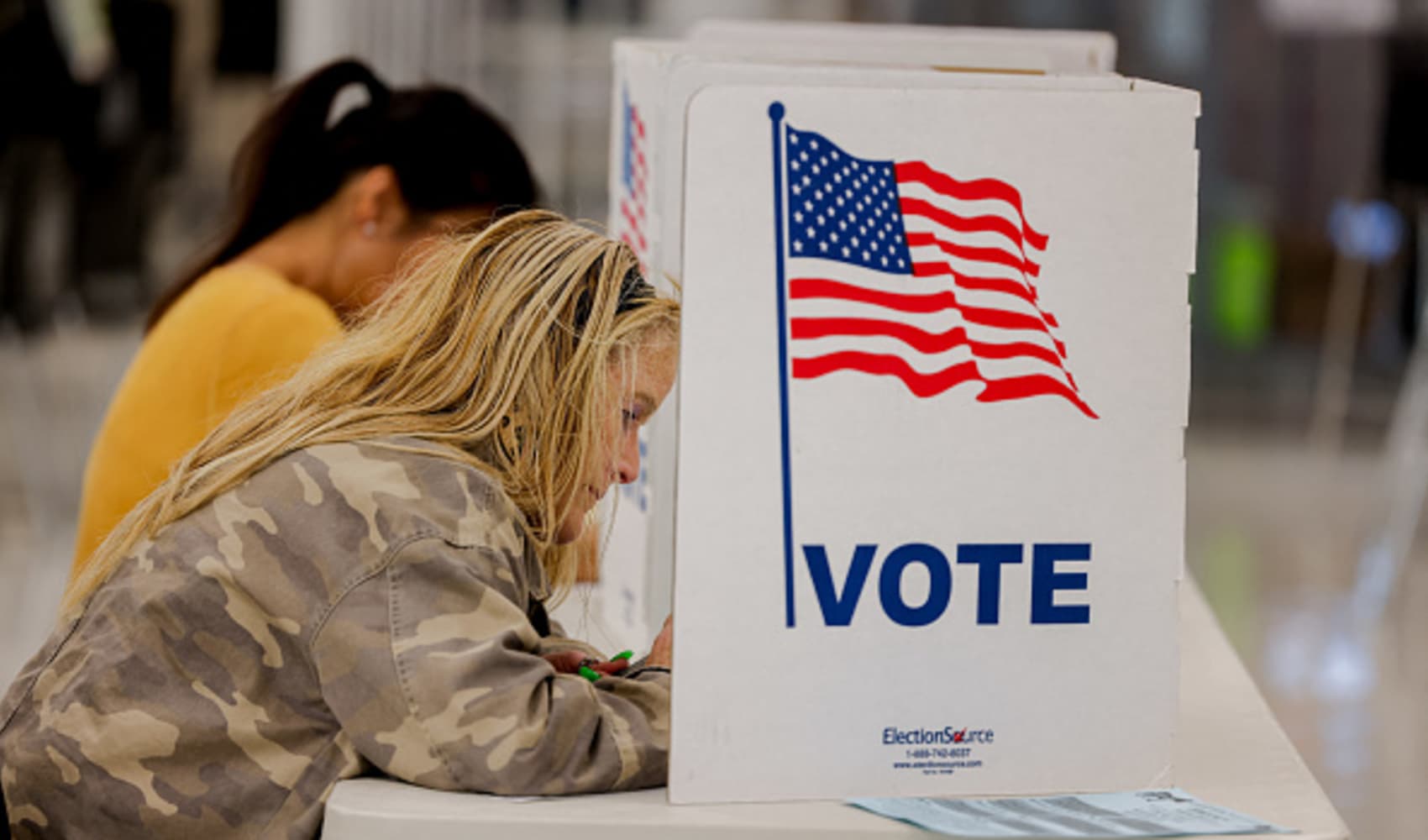
- Congressional lawmakers released the details of the first six budget bills needed to keep government agencies funded before they run out of money on Friday, March 8.
- The funding package now heads to the House for a vote and, if it passes, it will be sent to the Senate.
- Democrat and GOP leaders both touted their respective victories within the package, though they still have six other funding bills to negotiate before the second funding deadline on March 22.
Congressional lawmakers on Sunday released the details of the first six budget bills needed to keep government agencies funded before they run out of money and a partial government shutdown takes effect this coming weekend.
The 1,050-page appropriations package has funding for six major areas of government that encompass military and veterans affairs departments, agriculture, commerce, energy and water, transportation, housing, and more.
Funding for those departments was due to expire last Friday, March 1, but congressional leaders struck a deal on Wednesday to extend those deadlines by a week and avert a partial government shutdown. It was the fourth such funding extension this fiscal year, as Congress has struggled to settle on a long-term budget plan.
Get top local stories in Southern California delivered to you every morning. Sign up for NBC LA's News Headlines newsletter.
This partial budget deal is a step forward in the push to secure a permanent budget plan for the rest of the fiscal year, which started Oct. 1.
But these six funding bills are just half the battle.
The other six appropriations bills that keep the rest of the government funded are due to expire March 22, giving Capitol Hill just over two weeks to negotiate the other half of the government's spending plan.
Money Report
Still, leaders on both sides of the aisle are touting the first half of funding package as a win, though for different reasons.
Democrats are trumpeting the continued full funding of a special food assistance program for women, infants and children. They also secured wins on rent assistance and pay for infrastructure employees like air traffic controllers and railway inspectors.
"Throughout the negotiations, Democrats fought hard to protect against cuts to housing and nutrition programs, and keep out harmful provisions that would further restrict access to women's health, or roll back the progress we've made to fight climate change," Senate Majority Leader Chuck Schumer, D-N.Y., said in a Sunday statement.
Meanwhile, Republicans are trumpeting victories on veterans' gun ownership and funding cuts to government agencies like the Environmental Protection Agency, the FBI and the Bureau of Alcohol, Tobacco, Firearms and Explosives.
"House Republicans secured key conservative policy victories, rejected left-wing proposals, and imposed sharp cuts to agencies and programs critical to President Biden's agenda," House Speaker Mike Johnson, R-La., said in a statement Sunday.
The funding package now heads to the House for a vote where it will likely face opposition from the House Freedom Caucus, a coalition of Republican hard-liners who have relentlessly opposed budget compromises over the past fiscal year.
"The clock is now ticking until government funding runs out this Friday. Between now and the end of the week, the House must quickly pass and send the Senate this bipartisan package," Schumer said Sunday. "Once again, it will only be bipartisanship that gets us across the finish line."
Don't miss these stories from CNBC PRO:
- Berkshire Hathaway is one of the most overbought stocks on Wall Street. Here are the others
- Want an Nvidia alternative? These 6 chip suppliers look set to gain big from the AI boom
- Jefferies says buy this under-the-radar software stock with ties to Nvidia and nearly 20% upside
- 'Opportune time to invest in real estate': Pros name 5 REITs to buy right now






